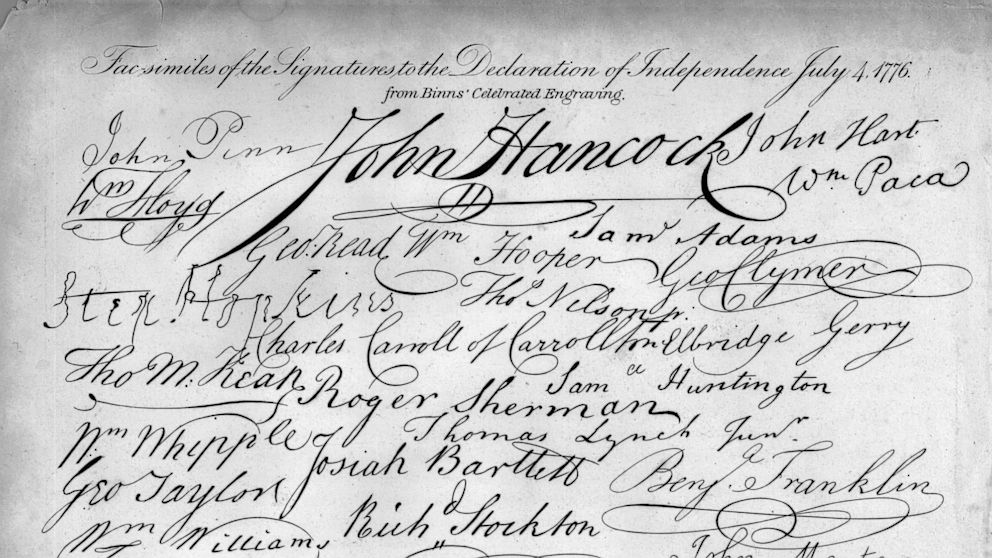This Week in History
From World War I to the Space Race, this week had its share of major events.

July 29, 2013 -- intro: From the Revolutionary War to the space race, this week in history had more than its share of political events. Read about all of the events that happened in the last week of July in this week's edition of "This Week in History."
quicklist: 1title: July 29text: 1958: NASA Established:The United States committed to the Cold War "space race" by officially establishing the National Aeronautics and Space Administration on this day in 1958.
The founding of NASA came after the Soviet Union launched its own space program the previous year, but the initial American response was a bit slow. In 1957, the U.S. launched its first satellite, called the Vanguard, but the device only got a few feet off the ground before exploding. Despite finding success with Explorer I, it was clear that more effort would be needed to create a legitimate space program.
Although NASA became a driving force in the Cold War, President Dwight Eisenhower proceeded with caution when creating the new agency. Eisenhower specified that NASA's research would focus on peaceful projects and that these plans would not interfere with national security measures.
media:19808124
quicklist: 2title: July 30text: 1965: Medicare Signed Into LawMillions of elderly people were granted health insurance in 1965 when President Johnson signed Medicare into law.
At the signing ceremony, former President Truman was honored for first proposing national health insurance and was the first Medicare beneficiary to receive an insurance card issued through the program.
Medicare was signed into law as an amendment to the Social Security Act of 1935 and was first meant to provide coverage for Americans over the age of 65. In 1972 eligibility for the program was extended to people under 65 with certain disabilities, as well as those with permanent kidney disease.
President George W. Bush further added to the program by signing the Medicare Modernization Act into law in December 2003. This act added outpatient prescription drug benefits to existing Medicare legislation.
media:19808187
quicklist: 3title: July 31text:1975: Jimmy Hoffa Goes MissingInfamous labor leader Jimmy Hoffa disappeared in Detroit on this day in history. The disappearance was widely believed to be a Mafia hit, but Hoffa's death remains a mystery to this day.
As a labor leader, Hoffa organized strikes in Detroit and advocated for disenfranchised workers. His work was eventually recognized by the Teamsters, a labor union known for its use of strikes and boycotts as well as various illegal means to achieve its demands on behalf of workers. Hoffa became the president of the Teamsters in 1957 when the former head of the group was imprisoned for bribery.
Although Hoffa's leadership and personality made him popular with many politicians and business leaders, he was also notoriously involved with mobsters and was the focus of many federal investigations.
In 1967, Hoffa was convicted of bribery and was sentenced to serve 15 years in prison, but continued to serve as Teamster president.
media: 19808242
quicklist: 4title: August 1text: 1914: World War I BeginsSeventy-nine years ago Thursday, Russia and Germany declared war on each other, marking the official beginning of the First World War.
Austria-Hungary had declared war against Serbia four days earlier on July 28, exactly one month after the assassination of Archduke Franz Ferdinand by a Serbian, Gavrilo Princip. On July 29, Austria-Hungary's forces began to attack the Serbian capital Belgrade, triggering a mobilization by Russia, which was allied with Serbia.
Russia's entrance started the domino effect that led to all-out European war. France, Russia's ally, began to mobilize its forces on Aug. 1 and declared war on Germany two days later. Germany then invaded Belgium the night of Aug. 3, causing Great Britain, Belgium's ally, to also declare war on Germany.
Although leaders on both sides expressed optimism that their respective countries would be able to secure a victory within months, the war quickly settled into a stalemate and dragged on for more than four years.
By the time an armistice was finally declared in November 1918, 20 million soldiers and civilians had lost their lives in the "Great War," the deadliest military action in history -- until World War II began 20 years later.
media:19809105
quicklist: 5title: August 2text: 1776: Declaration of Independence SignedOn Aug. 2, 1776, 29 days after the Second Continental Congress adopted Thomas Jefferson's Declaration of Independence, 56 delegates signed their names to an enlarged copy of the document.
Josiah Bartlett of New Hampshire was the first to sign the Declaration on that day. More than 200 years later, Bartlett served as an inspiration to Aaron Sorkin, who gave his protagonist president in "The West Wing" the same name.
But the president of Congress, John Hancock, and its secretary, Charles Thompson, had signed the original handwritten draft on July 4, just after its adoption.
Two weeks after Hancock and Thompson's first signatures, Congress decided to produce a draft with all the delegates' signed names, and Assistant to the Congress Secretary Timothy Matlack was assigned to pen the draft.
Four delegates refused to sign the Declaration, while another four opposed it but agreed to sign to give the people an image of a united Congress.
Five delegates were absent and therefore unable to sign -- including future president General George Washington.
media: 19808439




